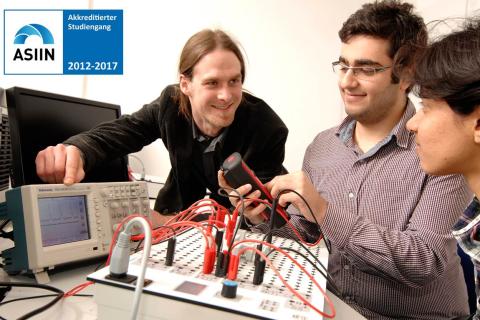Innovative electronics: the engine of the modern information society
The modern information society is based on the processing and passing on of information. Without electronics this would not be possible. For decades, all important technical innovations have contained a substantial amount of electronics. Without this, the internet, mobile phones, comfort functions in automobiles, efficient household appliances and low-priced automatically manufactured products of all kinds would not be conceivable. 80 per cent of all innovations in automotive manufacture are today based on the employment of modern electronics. Electronics make it possible to find perfectly new beginnings for solving perplexing and ongoing engineering challenges. The electronic engineer is able to examine also complex setting of tasks with systematic methods and compile appropriate solutions. He/she can effectively employ technical expertise and soft skills in an interdisciplinary, team-based environment, and develop innovative engineering solutions.
Course Structure
Altogether the degree programme consists of seven semesters of standard study time. Basic knowledge will be taught in the first three semesters. Following this, knowledge will be intensified in semester four and five. At the same time, selections of optional courses are made to form a study profile. The practical semester or the study semester abroad will follow in semester six. The seventh and last semester is for writing the undergraduate thesis. Here, we will also attach great importance to practical relevance and support any co-operation with the free economy. Furthermore, necessary skills for writing a thesis will be provided in block courses. Finally, studies will be completed with an academic conference.
Career Paths
As an electronics engineer, you’ll be able to use advanced expertise and systematic methods to examine and solve complex engineering tasks. You’re also able effectively lead or work in interdisciplinary teams of experts. Your qualifications will be in very high demand, which gives you the freedom to pursue a number of exciting and varied career paths.
Typical fields of activity are:
- Development (draft, simulation and test of electronic circuits)
- Production (planning, manufacturing, and examination of electronic products)
- Marketing and selling of technical products
- Guidance activities in the industry, in private-economical enterprises and at authorities
Your degree will allow you to break into a number of industries and sectors, including energy and environmental technology, process engineering, general machine and equipment construction, the electrical industry, the automobile industry and supporting industries, medical technology, the service industry and small to medium sized enterprises.


